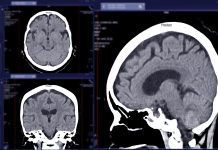New research from the University of British Columbia sheds light on the early signs of multiple sclerosis (M.S.), highlighting a link with mental health issues
Recent research from the University of British Columbia uncovers a significant connection between mental health and the onset of multiple sclerosis (M.S.).
Early signs of multiple sclerosis and mental health risk
The study, published in Neurology, suggests that individuals are nearly twice as likely to experience psychiatric conditions like anxiety and depression in the years leading up to the development of M.S.
Traditionally, MS was thought to manifest clinically only after the first demyelinating event, like vision problems. However, this research reveals a prodromal phase preceding classic M.S. symptoms, where the disease presents itself indirectly.
The importance of early detection
Early detection of M.S. is crucial, as it allows for timely intervention and potentially slowing the progression of the disease.
By recognising M.S. sooner, treatment can commence earlier, potentially enhancing the quality of life for affected individuals.
Study findings and mental health
The study examined the health records of 6,863 MS patients in B.C. over five years before the onset of classic M.S. symptoms.
Mental health conditions were prevalent among M.S. patients at nearly double the rate of the general population (28.0% vs. 14.9%), with psychiatric symptom-related healthcare utilisation consistently higher among M.S. patients.
A comprehensive approach to early M.S. detection
The study builds upon prior research, suggesting that symptoms like fatigue, sleep disorders, irritable bowel syndrome, anemia, and pain may also be part of the M.S. prodrome.
Identifying these early signs could revolutionise the diagnosis and treatment of M.S., preventing the severe consequences of delayed recognition.
Recognisng the connection between mental health and M.S. onset may pave the way for earlier detection and intervention, potentially improving the lives of those affected by this autoimmune disorder in the U.K. and Germany.








